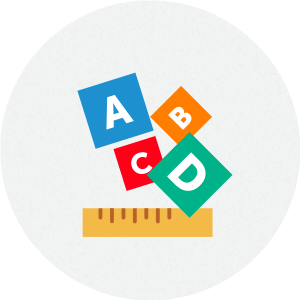
Getting started on the web with domain name registration
If you are new to the web, starting up a website can be daunting. However, with domain name hosting and domain name registration from HB Jamaica, creating a web presence is a breeze. At HB Jamaica, we make domain name search and registration easy for you. . . plus you can buy multiple domain names through us. We also offer domain name hosting, taking all of the hassle out of turning your domain names into your own personal internet address. Buy a domain name from HB Jamaica for an amazing price. . . and when ordered with a package, it is FREE!!Here are some things to keep in mind when doing a domain name search.

Domain and Brand
If you already have a business or brand, your domain should match your name. If the .com domain is taken, you can try an alternate TLD, such as net, but be sure not to put yourself in another company’s shadow or infringe on their trademark.
Domain Anatomy
Make sure your domain is easy to spell and pronounce, and doesn’t contain any strange letter substitutions or omissions that will make it difficult to remember. Hyphens are also usually not a great idea because people forget about them. Avoid Hyphens within your Domains when choosing your Domain Name for your website or ecommerce shopping cart.
Short and Simple
Keep the domain names as short and simple as you can manage. Single-word domains, when you can find one, are golden.
Domain Availability
Check that the domain name you choose does not appear as a username on major social media sites like Twitter, Facebook, or Instagram.Your guide to domain name registration
Conducting a domain name search at HB Jamaica is simplicity itself. We offer three easy steps to register your domain name. Firstly, type in your desired domain name into the domain name search bar. Secondly, our search results will display the available domain names or similar alternatives should your desired name already be taken. Finally, when you’ve found the domain you want, we offer you a price to register it. Whether you’re after a single domain name search or multiple domain names, our search facility will let you know what’s available. If you want to buy a domain name associated with a particular word, our domain name search will quickly show you your options. Once you’ve found your name or names, be sure to buy the domain name quickly so that you don’t lose out.
Buy Domain Name Extensions
Make life easy with our domain name hosting! Once you’ve successfully undergone the domain name registration process, you are nearly ready for the launch. Our domain name hosting gives you a reliable, simple and affordable service for a low, annual cost.
New-Domain
Domain FAQ
Are .com domains better for search engine optimization (SEO)?
No. All domain extensions are considered equal in the eyes of Google. There is no automatic preference given to a .com domain.
Where you do need to be careful, however, is to not register an alternate domain if the .com is taken by a large company. This can hurt your search results and also open you up to a potential trademark battle.
Should I buy multiple extensions for the same domain?
Yes. Registering a domain extension reserves it so that no one else can use it. So if you've got mydomain.com, you might be wise to also register mydomain.net and mydomain.org (and redirect them back to your correct site) in order to avoid confusion and keep your visitors coming to your site.
What is a premium domain?
Premium domains (also known as aftermarket or pre-registered domains) are short domains, often just one word or even just 3-5 letters. Most of them have a .com extension but many premium domains end with .org, .net, and .biz. These domains include common words and are generally the most memorable. Because companies value short domains that match their company name or products, these domains are typically the most desirable. Additionally, certain domains sold by different registries are considered premium and therefore have a higher price point. In some cases, the renewal costs of these higher-priced domains are also quite expensive. Some high-priced premium domains, though, renew at a regular (lower cost) rate, giving you a better value in the long term. Make sure to research the overall cost of the domain plus renewal to find the right domain for your budget.
What's needed to register a domain?
Anyone can register a domain. All you need is a good name, an account with Namecheap, and an acceptable form of payment.
Is it a good idea to own a domain with my own name in it?
Absolutely. Owning 'yourname.com' (as well as related domains such as yourname.tech or yourname.me) is a great way to brand yourself and retain control over your name's online presence. With a personal domain name, you can set up a portfolio, blog, or hobby site that’s associated with your own personal life. You can also set up a custom email address like john@johnsmith.com allowing your visitors an easy and memorable way to reach you. So even if you have no immediate use for yourname.com, it's wise to register a personal domain to ensure that you (and not some stranger) control your name online.
What if the domain I want says "make offer"?
In some instances, the domain you want may already be registered by someone else. The owner may, however, be willing to sell it to you for a negotiated price. By selecting "make offer" on these domains, you'll be able to connect with the current domain owner and make an offer. This service is provided by our partners.
Will my data be kept private?
In order to register any domain, you must provide certain personal information that you may not wish to be publically searchable in the Whois database. Signing up for WhoisGuard is a great way to keep your registration data private. WhoisGuard acts as a "shield" for your searchable information, displaying the address, phone number, and email of the domain registrar (Namecheap, e.g.) instead of your own. Keep in mind that WhoisGuard is an optional security add-on that must be renewed separately when you renew your domain.
